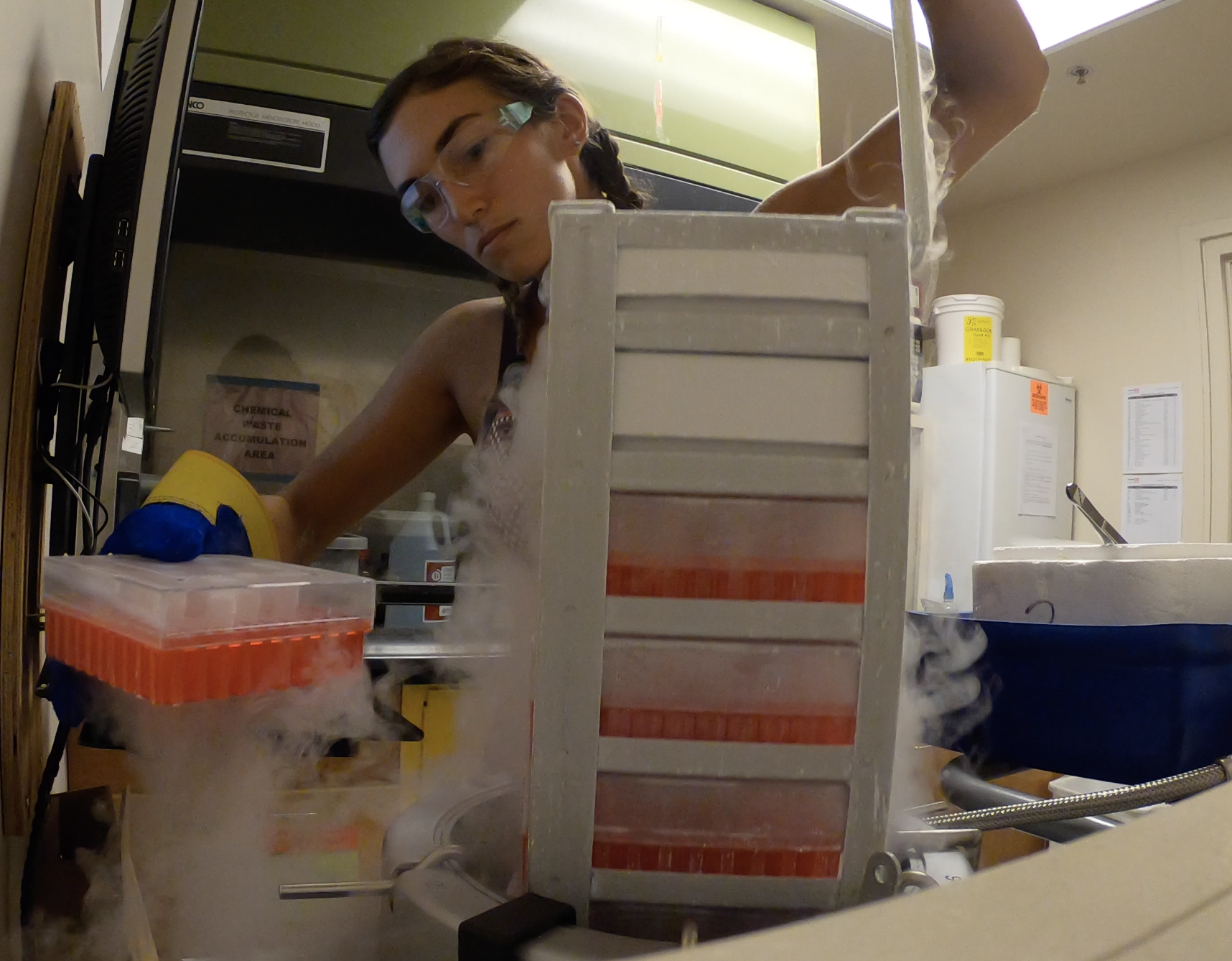Ocean Science
It is no secret that the ocean holds resources of great value, many of which are poorly understood, and even some of which have not yet been discovered. Our oceans provide countless services to us: they feed, protect, and captivate us, all the while regulating the cycle of life on our planet. But the oceans are changing, and with them, the world around us. Keep reading to find out what’s happening, and what we can do about it.
A global phenomenon described through art
Cryopreserving Coral Sperm for Reef Conservation & Restoration (Part 1)
Cryopreserving Coral Sperm for Reef Conservation & Restoration (Part 2)
Of all the coral reef conservation strategies you’ve heard of, this one is by far the most “chill.” Dive in with Liv to see how cryopreservation will help us address the coral crisis.
Diving with Great Hammerhead Sharks in Bimini
Intimidating? Definitely. Dangerous, though? Maybe not as much as you thought. Check out this photo series by our underwater correspondent, Liv, to learn more about the friendly, misunderstood Great Hammerhead Shark.
…or the Young Lady and the Plastics Sea
When faced with the loss of one of your heroes, you can only hope the world they left behind is a little better because of their time in it. Join Laís here for a tribute to one of the greatest marine scientists of our time, and a window into the microplastics crisis.
Explore a coral reef’s interior through the eyes of one of its smallest residents - a world that despite being bathed in darkness, serves a crucial and poorly understood role in keeping the reef healthy.
In this beautiful photo series, Liv captures the rare beauty of a healthy tropical coral ecosystem in the Bahamas. Dive in to a new world, and see what we, as marine scientists, aim to conserve.
Let go of your ego. The earth will thank you for it.
In an era of unprecedented environmental decline, collaboration may be the single most important resource we should be using to help global ecosystems. But collaboration is slow in science… and here’s why.
Coral reefs around the world are not in good shape. But amidst the destruction, there also is hope. In this two-part article, we address the current state of coral reefs around the globe, what changes we can expect to see in the coming years, and why the future of coral reefs may not be as bleak as we once thought.
Insights into manta ray behavior from our resident expert in Mozambique.
Reef Futures 2018: Lessons learned at a coral restoration and intervention-science symposium
Thermohaline circulation (THC) determines the climates on our continents and shapes global ecosystems. One part of THC in the northern Atlantic Ocean, however, seems to be shutting down, and it may be our fault.
Coral spawning is a rare, spectacular event. Join one of our marine biologists, Liv, as she dives into one of the most ethereal events the natural world has to offer, and what effects it might have on our ocean’s future.
One critical species of algae’s fight for survival in a changing Southern California ecosystem.
Enhancing survival and success during coral early life stages
Here we get a live look at the work of a coral restoration scientist as she searches for ways to help coral juveniles adapt and survive in a changing sea.
Keep reading here to discover what the future of reefs could look like in the coming years, and what we are doing to help them recover, both in the lab and in the field.
There is perhaps no intelligent creature on earth more different from us than the octopus. Sequencing the octopus genome has allowed us to get to the bottom of some of these differences, and understand what make the octopus, and its brain, so unique.
In the context of climate change, pollution is often overlooked as a “lesser evil” to things like global warming and ocean acidification, but presents a greater threat to ecosystems than we thought. Keep reading to see how heavy metal pollution is affecting our reefs.


















